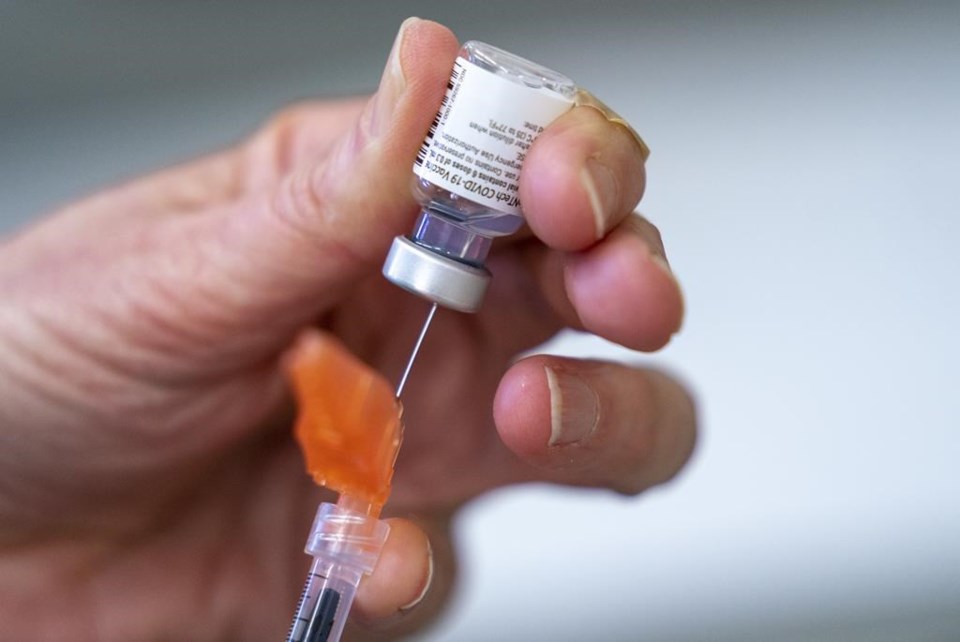TORONTO — Ontario is considering extending a stay-at-home order set to expire next week in an effort to control a devastating third wave of the COVID-19 pandemic.
The move would keep thousands of businesses closed and outdoor recreational facilities shut, despite critics saying the latter would help boost deteriorating mental health among residents.
Health Minister Christine Elliott said Monday that experts are advising the government to "stay the course" with restrictions set to lift May 20, even as case counts and hospitalizations have begun to decline.
"We're looking at that information on a daily basis," she said, of the province's COVID-19 figures. "(Medical experts) have advised us to stay the course for now, but we really need to see a pretty significant drop in the numbers of cases."
The province reported 2,716 new cases of COVID-19 Monday, along with 19 more deaths. The cases were based on more than 27,000 tests.
The province's top doctor said he would like to see "well below 1,000" daily cases before Ontario lifts the stay-at-home order. Dr. David Williams stressed that while the province is bending the pandemic curve, it has not brought the numbers down far enough.
Ontario declared a state of emergency and invoked the stay-at-home order in early April amid skyrocketing cases.
The government has already taken steps towards maintaining restrictions – last week it extended the state of emergency to June 2, paving the way for Premier Doug Ford and his cabinet to prolong the stay-at-home order under that declaration.
Under the order, stores providing essential goods remain open but are only permitted to sell grocery and pharmacy items. Non-essential retailers are limited to curbside pickup and delivery. Restaurants and gyms are closed for in-person service.
The province has also shut outdoor recreational facilities, except playgrounds, saying the measure is meant to discourage mobility at a time when residents are expected to stay home as much as possible.
The government's science advisers criticized the restriction of outdoor activities, saying they will not control COVID-19 and disproportionately harm children and those who don't have access to their own green space.
On Monday, Toronto's board of health called on the province to reopen outdoor recreational amenities.
"People need ways to get outside and enjoy the outdoors safely," board chairman Joe Cressy said in an online statement, adding the province must ensure " access alongside rigorous safety measures."
The Greater Toronto and Hamilton Area Mayors and Chairs, meanwhile, asked the province to provide "predictability" when it comes to restrictions.
"As the Victoria Day long weekend approaches, people and businesses have begun to ask perfectly reasonable questions as to where things will stand as of that time, so they can make plans of all kinds, business and pleasure," the group said Monday.
"We think it is important that the Ontario government communicate clearly and as soon as possible whether or not its order will be extended further or modified based on public health advice."
The latest developments come as Ontario hospitals remain under immense pressure.
Non-urgent surgeries have ramped down, patients are transferred between facilities and staff have re-deployed in an effort to handle an onslaught of COVID-19 patients. There are currently 1,632 people hospitalized with the virus, with 828 in intensive care units.
Ontario's fiscal watchdog said it will take approximately three and a half years to clear the surgical backlog from the pandemic.
In a report Monday, the Financial Accountability Officer projected that the backlog of cancelled surgeries will reach 419,200 procedures by the end of September.
Peter Weltman estimated it will cost the province $1.3 billion to clear the backlog, and noted the government allocated $610 million in its latest budget to address the issue.
He also said his projections on clearing the backlog assume hospitals will be able to operate at 11 per cent above pre-pandemic volumes.
Overall, the FAO said the province will have a $61.9 billion spending shortfall in the health-care sector over the next nine years and will need to introduce spending restraints to reach health sector spending targets.
"I hope our report sort of pulls the cover off and says there's a big problem here," Weltman said. "The problem is only going to get bigger, and I think the pandemic may have accentuated that."
Meanwhile, Ontario said it is adding health-care workers to a list of high-risk employees prioritized for their second dose of the COVID-19 vaccine.
Health-care workers were among the first groups to be prioritized for a first dose of the shot. However, the province later extended dosing intervals for COVID-19 vaccines from 21 days to four months, which means many workers are still waiting for the second dose.
The province said the workers can begin booking second doses by the end of this week.
This report by The Canadian Press was first published May 10, 2021.
Shawn Jeffords, The Canadian Press



